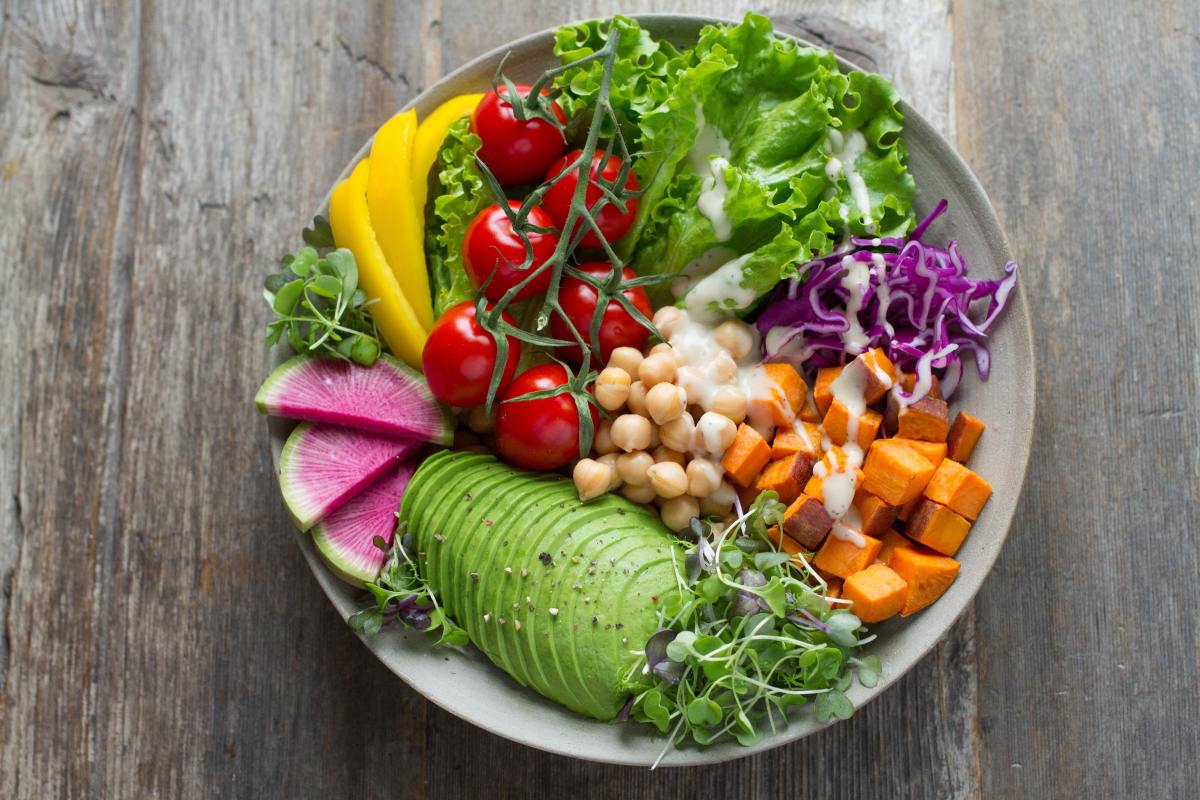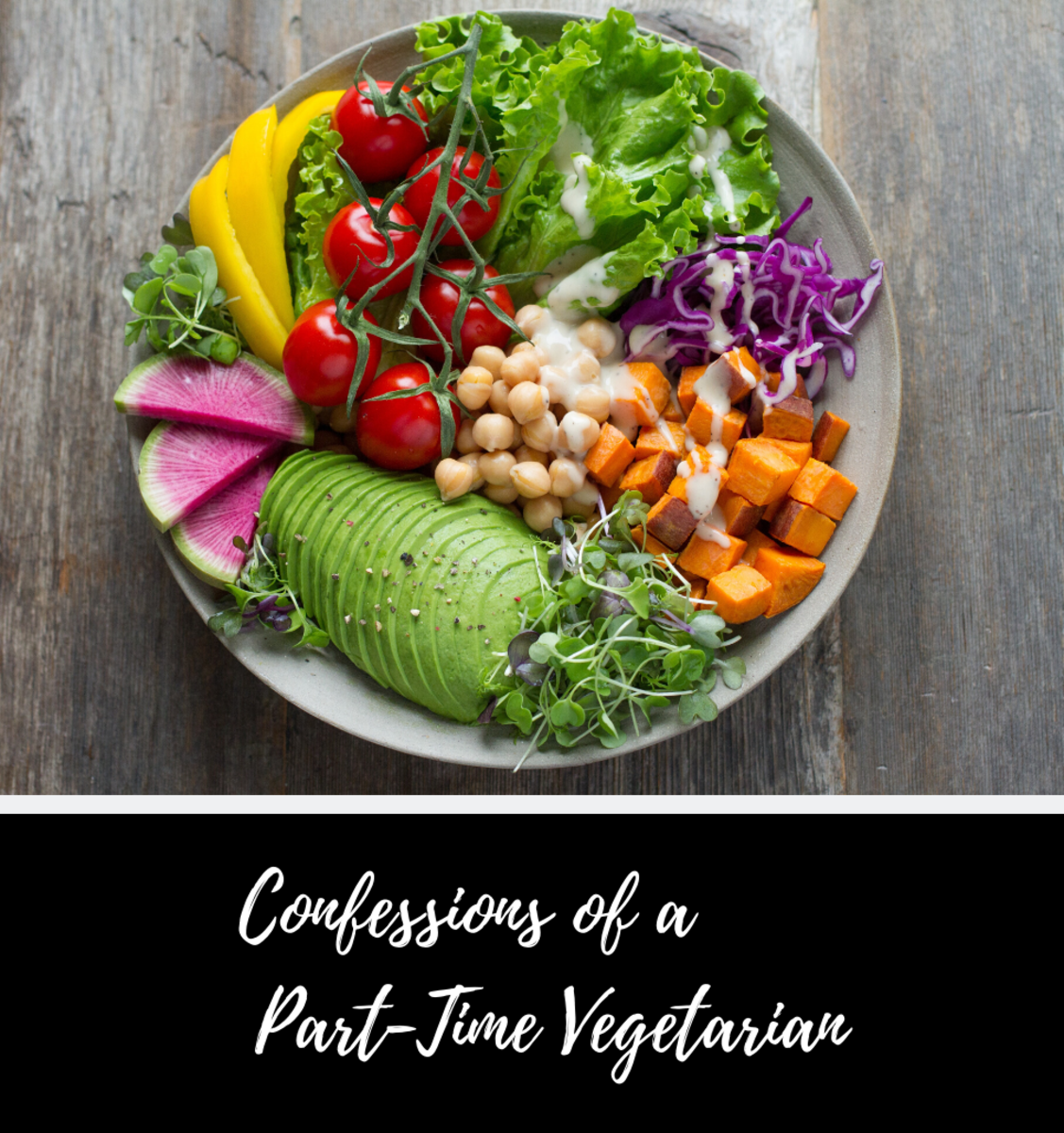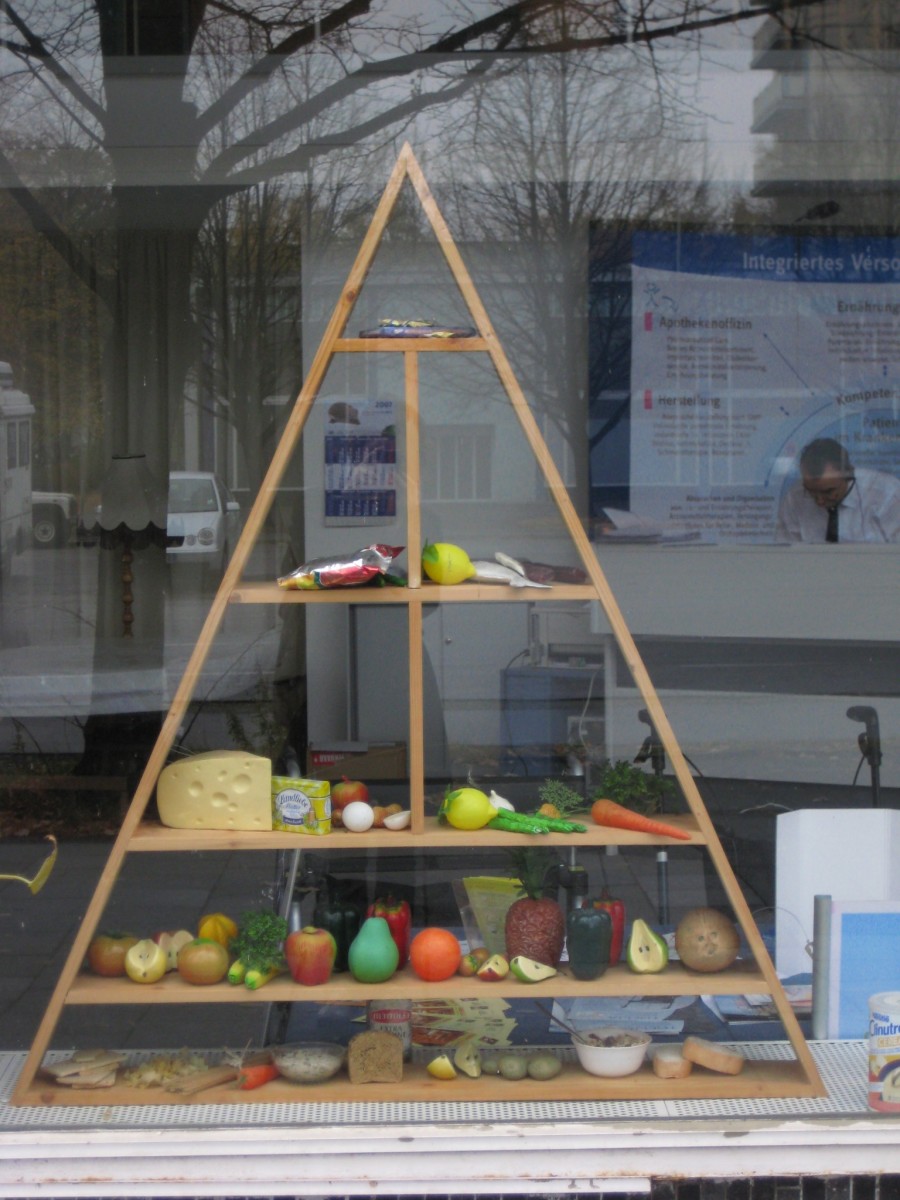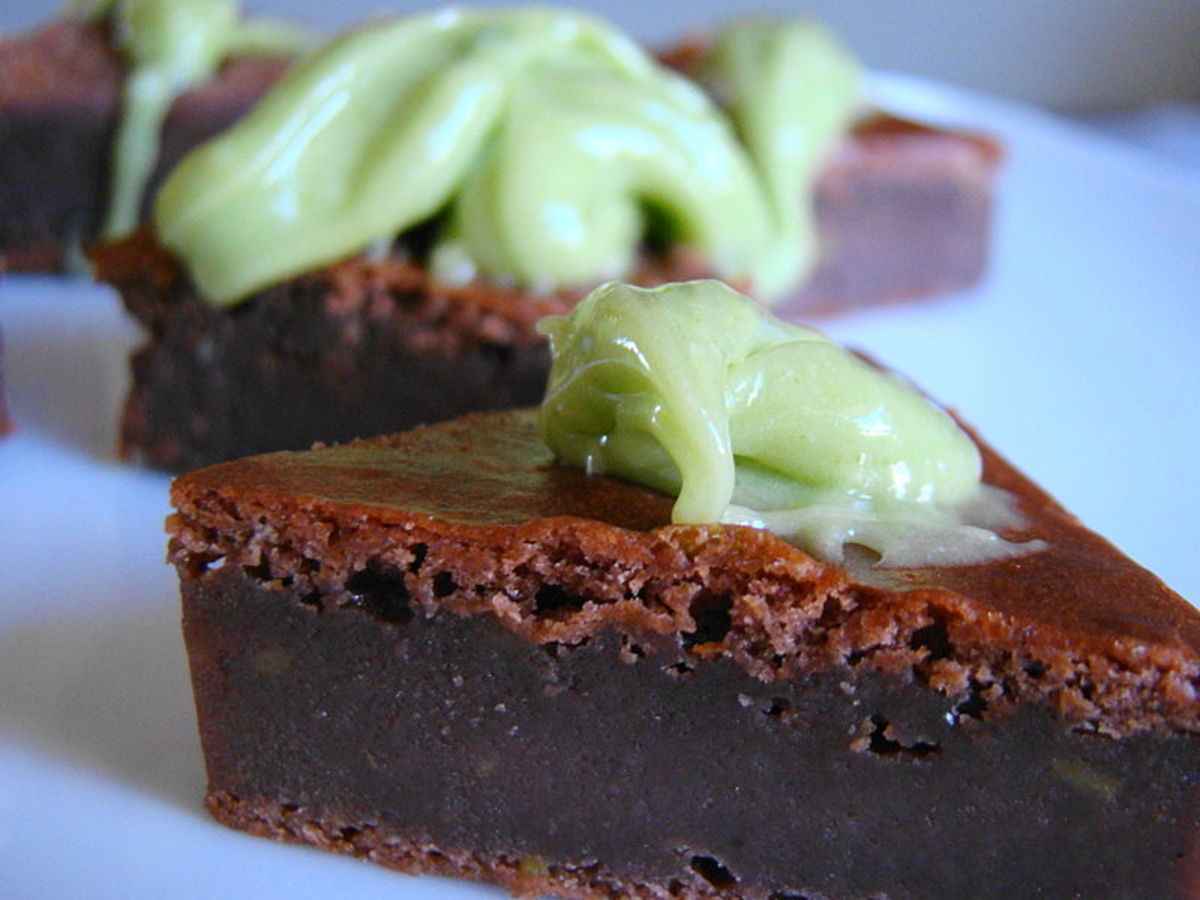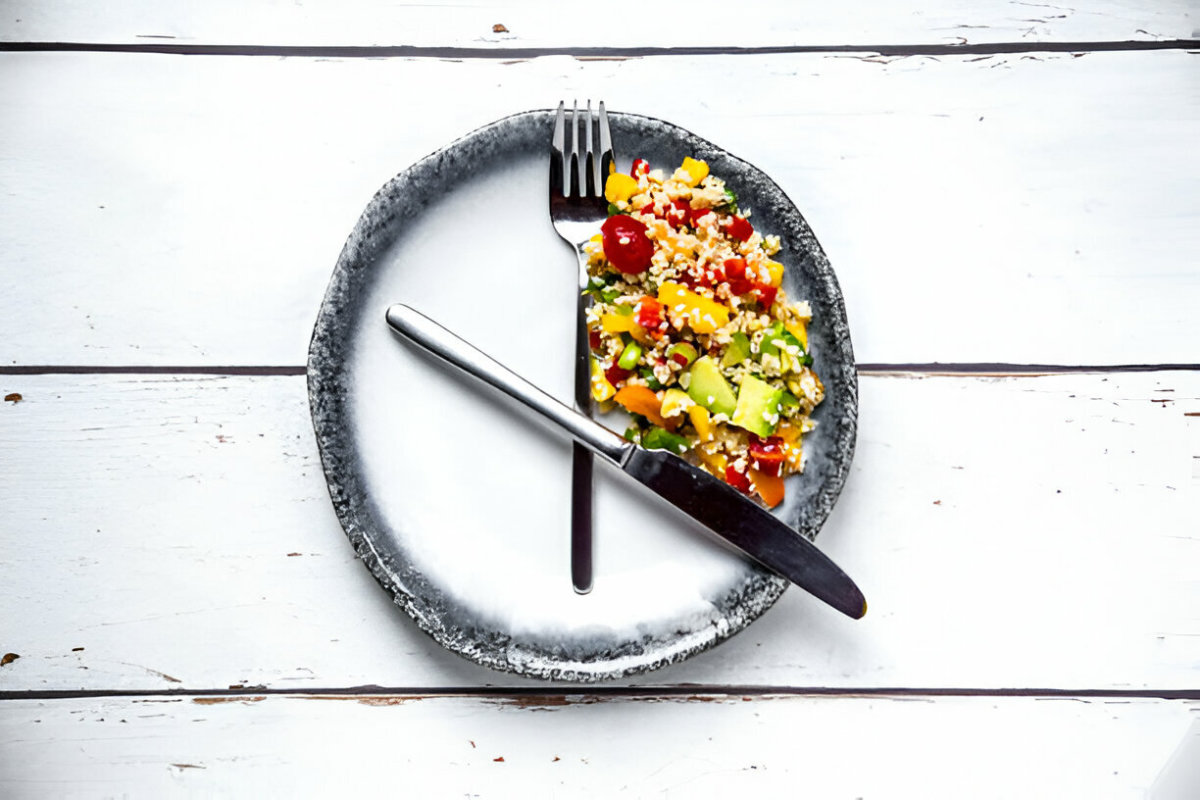A Brief Introduction to the Mysterious World of the Non-Meat Eater
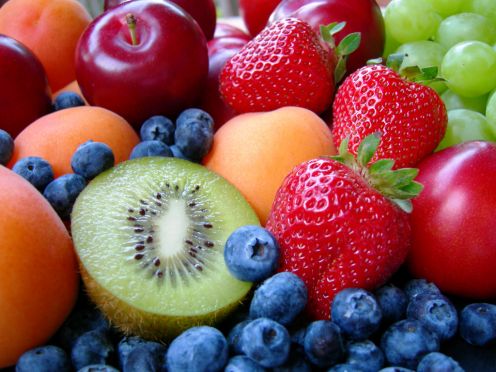
The importance of being meatless
In my last Hub I looked at the Sattvic way of eating - the Sattvic diet is really a vegetarian diet but it does overlap into Veganism on some points and in this Hub I'm going to explain where it differs and why ultimately, in my view, it's the better diet.
First of all, let's just clarify this - I'm sure you all know the difference between vegetarians and vegans, but just in case you don't here's a brief explanation. Both vegetarians and vegans eat neither meat nor fish, but vegans also eliminate any products that derive from animals. I'm sure you won't, but try not to (as they do in my part of the world) confuse vegetarians with pescetarians (from the Italian word 'pesce' meaning fish) – and yes, you've guessed it, pescetarians eat fish but not meat.
As I said before, according to Yoga philosophy, food is separated into three energy categories – the 'positive' foods (sattvic), the 'exciting' foods (rajasic), and the foods that dabble on the dark side (tamasic). I cited Harish Johari, author of 'The Ayurvedic Healing Cuisine', before and I'm going to cite him again because his views on our relationship with food are most interesting:
'The body is a temple: the individual consciousness that dwells within the body is part of the Supreme Consciousness. We should not eat simply for filling the belly – food should have some taste and give rise to love and life.'
I realise 'the body is a temple' has been somewhat overused nowdays – but really it is a temple. And as for giving rise to love and life - well, perhaps that's not a bad way to season a meal, but to do that we need to put the right food in us. And I have a feeling that the Supreme Consciousness in there has quite a refined palate.
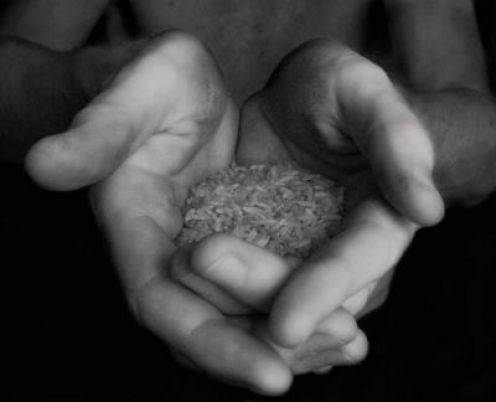
Vegetarianism vs Veganism
What's the first thing anyone on the road to Vegetarianism, Veganism or a Sattvic diet is likely to give up?
Meat.
So why on earth give up meat? Well, I'm sure you've heard all the stories on cruelty and killing a hundred times so I won't bore you with those. Instead I'll go back to citing Harish Johari, a great advocator of the Ayurvedic diet:
'Eating and cooking are forms of worship, in the sense that the body is our instrument of work and we must take care of it in terms of diet.'
And that, at least for me, is an important reason for becoming vegetarian - to look after the body. It might sound selfish but I'm afraid the ego has to be involved at the start – and ultimately, I hope, it brings benefit to the universe as well.
But why should eating meat mean not looking after the body?
So, are you sitting comfortably? Let's begin by examining the true nature of meat and why, according to the Yoga philosophy, it is something we should avoid putting in our body :
- Firstly and most importantly, meat is dead food and therefore, according to Ayurveda, it's tamasic (although it's not alone in this category). Tamasic food removes vital energy from the organism. True, it may seem that meat gives you energy but what it's actually giving you is negative energy which may manifest itself in anxiety, irritability, anger, depression or generally 'dark' thoughts.
- Meat and Digestion – humans are carnivores is something people chorus to me a lot – but where did this idea actually originate? Carnivorous animals have powerful stomachs and short simple intestines that minimise decay and absorption of toxins from the meat, also allowing food to be processed and expelled quickly (generally within 24 hours). Plus carnivores eat freshly killed meat and usually sleep for several hours after eating so as to digest. The human digestive system, on the other hand, is very different – man has a considerably longer intestinal system, (yet not long enough to be classed as a herbivore) and meat particles can cling to the digestive tracts which will eventually lead to illness or premature ageing. This is why in yoga people are advised to fast on a regular basis as fasting allows the body to eliminate any waste that's still hanging on in there. Therefore anyone who eats meat is especially advised to fast. To get an idea of what effect meat has on our body, here's a test you can try at home – fill two glasses with tap water, in one, drop in a slice of fresh fruit or vegetable and in the other, a piece of raw meat – keep at room temperature and observe after a few days. You can probably imagine what the outcome will be, but, well, imagine that glass of water to be the inside of the human digestive organs.
- Meat and anxiety – the fear and suffering that animals go through when slaughtered has an effect on the person who then eats their meat. The animal's fear will create a dramatic production of stimulating biochemicals such as adrenalin and dopamin which will be then absorbed by the human beings. According to Eastern philsophy 'the body of a meat-eating individual is continually in a state of drugged hyper-arousal, creating chronic tension, anxiety and feelings of insecurity and confusion'. Just so you know. Vegetarian recipes are a way of freeing ourselves of at least one of our wordly chains.
For further interesting reasons for Vegetarianism click here :
So now we've got the reasons for eliminating meat out the way (and I promise it wasn't a vegetarian nag) let's go on to the differences between Vegetarianism/Sattvic and Veganism and see which, ultimately, is the better diet.
Scary picture!

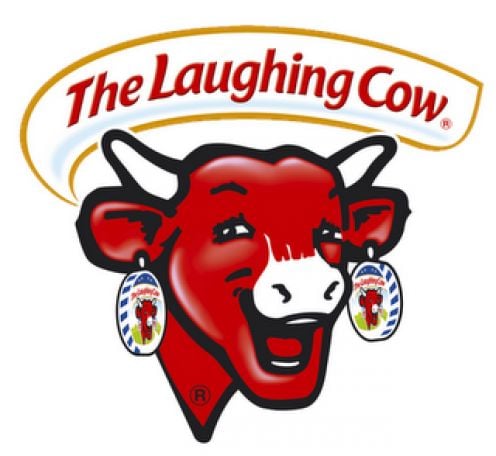
The Milky way
So where do vegans and vegetarians/Sattvic followers differ?
On the dairy products - milk, cheese and all the rest. Up to here, followers of the Sattvic diet can call themselves vegetarian as milk is perfectly acceptable in a Yogic diet. As Harish Johari points out, 'we are mammals and our life depends upon milk from the start' but having said that he talks at great length of the poor quality of today's milk –
'if modern society has polluted the cow's milk and caused harm to the giver of the milk, then so much for city living and 'civilised life''.
Of course, it's for this reason that vegans give up dairy products in the first place. Quite simply the treatment to the animals is such that the animal suffers as much as an animal who is heading for slaughter.
However, this doesn't mean you should give up dairy products. Firstly, milk is sattvic so according to Yoga it contains positive energy. And here are few benefits of (good quality) milk according to Harish Johari:
- Milk is known to clean the digestive tract, expelling toxins and waste from the stomach.
- a milk 'kalpa' or milk fast is a treatment used by homeopathic doctors for patients who have given up hope on living a healthy, happy life. Such milk can also cure premature ageing as during the fast the body reorganises itself. If milk is the sole nourishment of the human organism for some time, it can rejuvenate that organism.
- Milk is a digestive aid as it is alkaline in nature. The main organs of digestion are the mouth, stomach and small intestine – milk helps all three,
- milk produces new blood.
The most important thing is obviously the source. For example, according to Harish Johari, milk from a cow whose calf has died is not good for us and will create mucus, bile and gas.
The treatment of the cow (or any animal that is donating food, for that matter) is fundamental - cleaning, brushing and caring for the cow is important for good milk, as is hand milking rather than using milking machines - also in India cows are never milked when they are pregnant.
Hmmm. I don't know about you but my choices of finding 'happy' milk are rapidly getting slimmer. Obviously in India the cow is venerated and treated well but if you can find some happy cows where you are and you're a lover of milk, you might want to start getting your milk from them. And if you're not sure what to look for, here Harish Johari's cow 'top three':
1. The black cow – milk from this cow is highly sort after 'such milk is like nectar' and can relieve gas, mucus, bile, burning sensations, depression, heart disease, stomach problems, kidney disorder, jaundice and more.
2. The spotted cow, brown or red – milk from this cow cures problems of excess bile.
3. Milk from a cow that has stopped feeding her calf – this is strengthening milk but harder to digest.
So beware – unhappy cows, goats, whatever, means bad food vibes for you as well as suffering from the one donating it. Alternatively, you could buy your own cow (and yes, I have been considering it...) and just taste the difference with those good vibes in your morning cup of tea!
So all in all the Sattvic eaters are quits with vegans – they'll be no drinking of milk nor eating no cheese unless it's from happy chappies.
Say cheese!
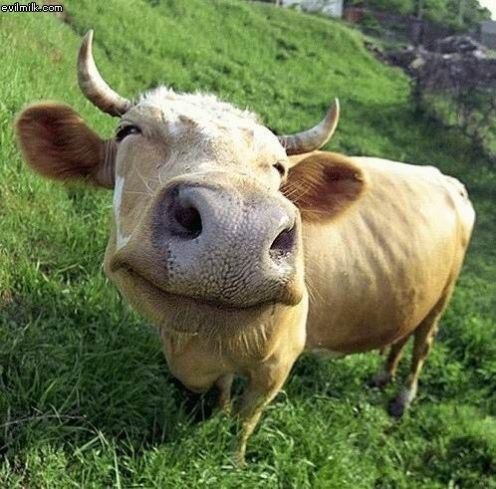

The Sattvic diet and Veganism
One point where Sattvic followers and Veganism do meet is the egg point. Now, according to Yoga philosophy eggs are tamasic and therefore should be avoided. For anyone practising yoga and meditation giving up egg is important for keeping the mind tranquille but even without practising yoga it's not hard to understand why people choose to give up eggs - if we look at what's presented on supermarket shelves and what the feathery creatures have gone through to give them us, well, the less said about that, the better. Eggs are quite odd, after all, as my brother pointed out to me one day - 'they're some creature's ovaries' (I went off my omelette a bit that day, I can tell you).
So the point is, if we're going to eat eggs at least we should eat the decent ones, for our own good. I mean free range, and really free range – from a place where you can see the little cherubs scratching around and clucking to each other. Let's be honest, powdering up their ovaries and squirting them into factory cakes – well, it's hardly flattering, not for the hen, nor for ourselves.
So going back to Yoga philosophy, a part from eggs, unlike vegans they don't rule out all things deriving from animals and the list is quite long. But as I said before, the key is the treatment of the animal itself. Let's take honey, for one.
Honey??
Well, again, I fully understand why vegans avoid honey going by the majority of honey that's on offer in the supermarkets (that would take another Hub to explain) but for me, as a vegetarian/Sattvic eater, honey is ok. I've got some honey from an apiary (a clever word sneaked in to impress you – it just means a beekeeping place) – a beautiful place in the South of France (I'm trying to impress you again) and the fact is, I even looked round the beehives and I can assure you that those bees are happy little buzzing fellows and the owners too for that matter – all the perfect recipe for delicious honey.
Therefore the Sattvic diet clashes with veganism on some points but the bottom line is, as you've probably gathered by now,(cue music) them vibes, them vibes, them food vibes.
Bloomin' 'eck – you may say at this point (assuming you're a Londoner from the 1940's), there's just far too many sacrifices to make in this vegetarian business – but you know what? Really there aren't.
Because, the way I see it, you're only really sacrificing yourself when you eat the packaged stuff that's on offer today – and if you're not ready to become vegetarian – well, I'm not here to convert you but I can bet you'll be a whole lot happier if your meat comes from an animal that's respected and treated well. Sadly, this may be hard to find.

The end...some day?
So to conclude, with factory farming the way it is today, vegans have a good point in giving up dairy products and even honey. As for milk – well that's one thing this vegetarian, or Sattvic eater, or whatever you want to call me, can't give up. See you later – I'm off to buy a cow!
© 2010 Bengali Bratisha

